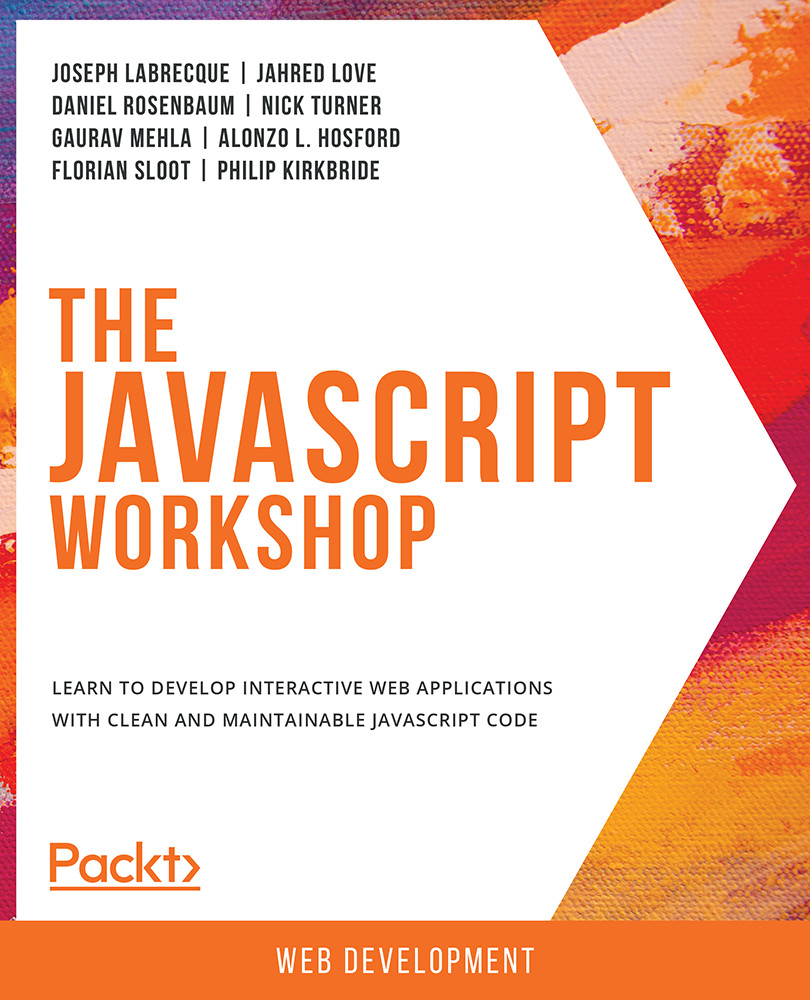Boolean operators are operators that, when combined into an expression, return a Boolean value. Most Boolean operators are "binary" operators that accept two values, each of which sit either side of the operator. Like other operators, each value can be an expression and can be of any value type. As Boolean operators themselves form expressions, they can be used as input to other Boolean operators.
Boolean operators fit into two categories; namely, comparison operators and logical operators.
Comparison Operators
Comparison operators are used for comparing one value, or the result of an expression, with another. The operator in this circumstance may be considered a rule. If the rule succeeds, then the response of the combined expression returns true. Otherwise, it returns false.
Comparison operators include the following symbols:
Figure 5.5: Comparison operators and their descriptions
Comparison operators are often...



 Free Chapter
Free Chapter
